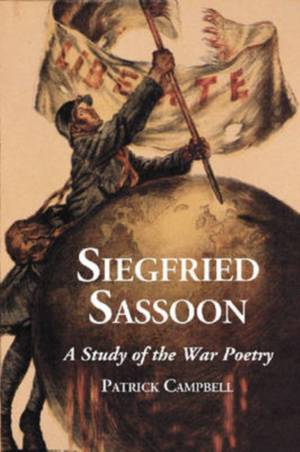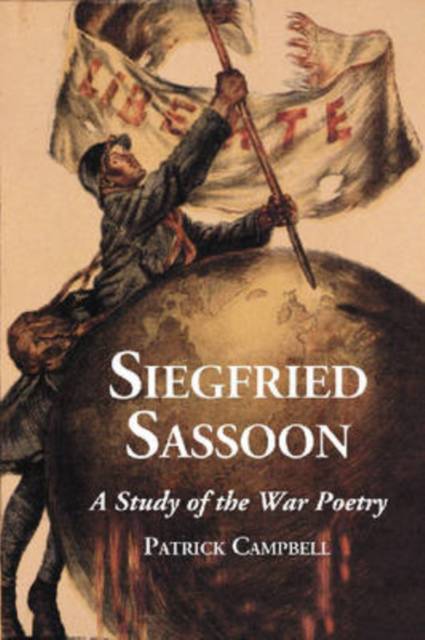
- Afhalen na 1 uur in een winkel met voorraad
- Gratis thuislevering in België vanaf € 30
- Ruim aanbod met 7 miljoen producten
- Afhalen na 1 uur in een winkel met voorraad
- Gratis thuislevering in België vanaf € 30
- Ruim aanbod met 7 miljoen producten
Omschrijving
Though Siegfried Sassoon would argue the point throughout his life, most critics regard his war poetry, written during World War I, as the best of his writings. Like many of his artistic contemporaries, Sassoon embraced the "Great War for Civilization" with great fervor, and it was this passion that he brought to his earliest writings about the war. "Absolution," his first war poem, published in 1915, summed up his feelings: "fighting for our freedom, we are free."
Fighting on the frontlines, Sassoon soon came to the conviction that his war for civilization was anything but civilized. And thus his writings took on a new tone, courageously denouncing a conflict that was no longer about "defense and liberation" but was for "aggression and conquest." Through primary documents and extensive research, the current work provides critical analyses of Sassoon's war poetry. Detailed examinations of each of the so-called trench poems show how the poet and his poetry were transformed through his wartime experiences and give the rationale for the critical consensus that the Sassoon canon is among the most significant in the literature of modern warfare.
Specificaties
Betrokkenen
- Auteur(s):
- Uitgeverij:
Inhoud
- Aantal bladzijden:
- 237
- Taal:
- Engels
Eigenschappen
- Productcode (EAN):
- 9780786432448
- Verschijningsdatum:
- 13/08/2007
- Uitvoering:
- Paperback
- Formaat:
- Trade paperback (VS)
- Afmetingen:
- 160 mm x 229 mm
- Gewicht:
- 335 g

Alleen bij Standaard Boekhandel
Beoordelingen
We publiceren alleen reviews die voldoen aan de voorwaarden voor reviews. Bekijk onze voorwaarden voor reviews.









